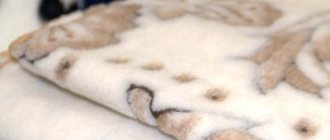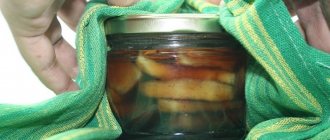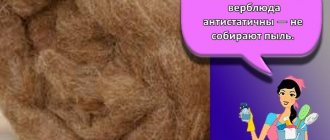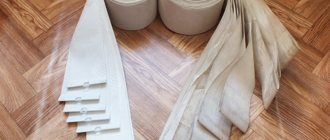Despite the wide range of bedding made from modern ultra-thin and light fabrics, the wadded blanket is still in demand among buyers.
It is warm and cozy. Under it you can feel protected from the entire outside world.
However, like any other thing, a cotton blanket gets dirty over time, and it also perfectly absorbs dust and absorbs foreign odors. Therefore, caring for it must be regular.
Read the article on how to wash and dry a cotton blanket at home.
Can it be washed?
You can wash a cotton blanket in a machine or by hand. Each method has its own characteristics.
Automatic washing is quick and less labor-intensive, but not every home has a machine that can accommodate a massive blanket. It must be taken into account that its weight increases several times when wet.
In addition, the following risks must be taken into account:
- Clumping of filler.
- Deformation of the product after contact with water and intense rotation in the drum.
- Difficulty in drying the product. Before you decide to wash, you need to think about where the blanket will dry. If it is not possible to take it out into the fresh air, you need to postpone washing.
If these difficulties do not bother the owner of the quilted blanket, then you can start washing.
Pre-soak
How to wash a cotton blanket if it is large and has old dirty stains? The only thing that will help you here is pre-soaking before washing by hand. The procedure is completely simple, you just need to:
- prepare the product before soaking: knock out dust from it, identify the most contaminated areas;
- pre-prepare a liquid soap solution or detergent in capsules;
- fill the bath with water at the temperature indicated on the label of the product used;
- Pour the prepared solution into the water and stir thoroughly. Then carefully place the blanket there for no more than 15 - 20 minutes. It is advisable to turn it over all this time.
After this procedure, you can immediately start washing. Use a brush to rub all contaminated areas on one side, then on the other. After this, open the bathtub drain valve, starting to lightly wring out the blanket. When the dirty water has drained, the bath is filled again with water at the same temperature as when washing. The product is thoroughly rinsed several times with changes of water.
You need to dry the blanket straight out, periodically turning it from one side to the other and pulling out lumps of cotton wool.
It must be borne in mind that when pre-soaked, the cotton filler is completely saturated with water and will take a very long time to dry.
Detergent
First you need to decide on a detergent , since ordinary powder for washing a cotton blanket is not suitable. To care for the product, use only liquid concentrates or gel capsules.
They dissolve faster in water, clean dirt better and rinse faster. For thick cotton filler, these three qualities are especially relevant.
Top 3 detergents for washing a cotton blanket:
Losk. Depending on the color of the blanket, you can choose a detergent for white or colored fabrics. The concentrate is suitable for hand and machine wash. The cost of a 1.3 liter package is 230 rubles.- Ariel washing gel .
It is a popular, inexpensive and effective detergent that can be used for machine and hand washing. The product is activated at temperatures from 30 degrees, so it removes stains well even in cool water. The cost of a 1.04 liter package is about 300 rubles. - Persil capsules . They are used only for automatic washing. The capsules contain not only liquid detergent concentrate, but also active enzymes and a stain remover. They are immediately placed in the drum of the washing machine. Use 1 capsule for 1 wash cycle. The cost of a package (14 pieces) is 310 rubles.
When washing a heavily soiled cotton blanket, there is no need to increase the recommended dosage of detergent.
This will not increase its effectiveness, but will only provoke excessive foaming. As a result, it will be more difficult to rinse the fabric.
General rules for hand washing and nuances
Washing by hand will take at least three hours, so please have some free time, effort and patience.
The manual process begins with localized stain removal. Using chemical or alternative traditional stain removers, carefully remove stains from the edges to the center. If possible, use dry cleaning mixtures.
- There is no need to soak the cotton blanket before washing it.
- Dissolve 50 g of laundry soap shavings, 30 ml of liquid gel, and 10 ml of stain remover if necessary in 40° water.
- Using a sponge or microfiber brush, scrub the entire surface of the product in a circular motion.
- Rinse several times in cold water to remove any remaining cleaning product.
Instructions for processing in an automatic washing machine
If the bedding fits in size, it can be washed in a machine. Step-by-step algorithm of actions:
- knock out the dust from the blanket or vacuum it;
difficult stains are washed by hand in advance;- place the product in the drum;
- pour detergent into the compartment;
- set the water temperature to 40 degrees;
- turn on the “Delicate Wash” mode (this option may have different names in different models of washing machines);
- the number of revolutions is set to a minimum (400-500);
- include the “extra rinse” function;
- wait for the washing cycle to complete, remove the item from the drum and send it to dry.
The blanket must be removed from the machine immediately after the sound signal indicates that the wash is finished. The longer it sits without moving, the more the filler will crumple.
What to remember
- Study manufacturers' recommendations. On the labels, manufacturers indicate recommended cleaning methods that will not damage the products.
- Consider the weight and size of the item being processed. When washing in a washing machine, take into account the weight and size of the product so that washing does not lead to damage to the machine.
- Remove dust before washing. Before washing, remove dust from bedding and remove old stains using a stain remover.
- Do not squeeze. After washing, do not wring out the blanket to prevent the filling from becoming loose. Allow the water to drain naturally.
- Dry flat on a horizontal surface. The bed should be dried flat to maintain the shape of the blanket and distribute the batting evenly.
- Wash in warm water . To prevent the product from shrinking, it should be washed at a temperature no higher than 40 degrees.
- Ultraviolet light will get rid of unpleasant odors. The sun's rays have a beneficial effect on the internal filler of any bedding, destroying mites and filling it with oxygen.
How to wash by hand?
Hand washing is recommended with pre-soaking.
You should not start washing alone. It is necessary that there is at least one more person in the apartment to help wring out the water from the blanket.
Procedure:
- Before washing, the product is knocked out or vacuumed. If you do not do this, then when the dust gets wet it will penetrate deep into the fibers and it will be difficult to get rid of it.
- Warm, but not hot water is poured into the bath.
- Dissolve the detergent in it until a rich foam forms. For hand washing, liquid detergent is also used.
- Soak the blanket for 30 minutes.
- After the specified time has passed, take a soft brush and rub all contaminated areas. When the stains are removed, the product is rinsed. The procedure is repeated until dirty soapy water stops flowing from the blanket. You can help yourself with a shower and a brush.
- Leave the product to drain without removing it from the bath. You can speed up the process if you squeeze it manually.
- When the bulk of the water has drained, the bedding is sent to dry.
Methods for washing cotton blankets
There are 3 ways to clean at home:
- machine;
- manual with pre-soaking for heavy contamination;
- superficial cleaning to simply freshen the blanket.
Automatic washing is less gentle and is not suitable for all products. Before choosing a washing machine, you need to estimate the weight of the wetted product and the maximum permissible weight of the loaded laundry according to the instructions.
It is better not to wash a heavy and large single or double blanket in this way to avoid machine damage!
Hand washing takes longer, it is a labor-intensive process that requires certain conditions, but it gives the best result. Having had this experience once, washing cotton blankets will no longer seem like a difficult process.
If the product is slightly dirty and has a short period of use, it is sufficient to limit itself to surface cleaning. Let's look at this process in more detail.
Dry cleaning
Dry cleaning a cotton blanket involves using a minimal amount of liquid, or not using it at all. The procedure can be carried out in several ways:
Using a vacuum cleaner . The blanket is spread on a flat surface and vacuumed on both sides. This method allows you to get rid of dust mites that accumulate in the filler.- With the help of snow .
In winter, the blanket is taken outside, snow is thrown over it, left for a few minutes, and then swept away with a broom. Then the product must be thrown over the crossbar and carefully knocked out on both sides. You can repeat the procedure several times. This method allows you to get rid of dust and foreign odors, and the frosty air will destroy all microorganisms. - Using starch . It is applied to the surface of the blanket and pressed down with your palms. Leave the product in this form for 12 hours, after which it is thoroughly vacuumed. This method is designed to get rid of dust and unpleasant odors.
Dry cleaning is carried out for preventive purposes; it cannot replace a full wash.
Surface cleaning methods
If the condition of the blanket still allows you not to resort to washing, or you simply do not have time for it, use the rules of surface cleaning.
Dry cleaning
- First of all, you need to knock out the dust and remove hair and animal hair with an adhesive roller.
- Mix 2 tablespoons of laundry soap shavings with 0.5 liters of water in a plastic bottle. Shake it thoroughly until the soap is completely dissolved. Use a lid with a spray bottle.
- Place the blanket on a clean, flat surface - the floor, dining table, etc. Apply the solution to contaminated areas using a sprayer. Treat problem areas with a brush or the rough side of a dish sponge, working quickly so that the solution does not have time to penetrate the filler.
- Blot wet areas with a dry towel or paper napkins and dry the product properly. (See drying recommendations)
Timely surface cleaning will extend the life of your blanket, save money on dry cleaning services and time for a full wash.
Cleaning with a steamer
Cleaning with a steamer has a number of advantages over other cleaning methods:
- Steam gets rid of unpleasant odors;
- Removes complex stains;
- Destroys microbes by exposure to high temperature;
- Takes a little time.
If you have a steam generator, cleaning will be convenient using it. If not, the steam mode of an ordinary iron will do.
- Carefully treat existing stains with a stain remover or a solution of laundry soap using a brush. Remove excess using paper napkins or a dry towel.
- Having placed the blanket on a horizontal surface, treat the fragments of the product with steam for 3-6 seconds, moving the steam generator/iron as necessary.
- Turn it over and process the other side.
- Dry the product thoroughly.
Important! If immediately after steaming the blanket you feel that it is quite dry to the touch, do not be lazy and still dry the product for some time. Even a small amount of moisture absorbed into the filler can contribute to the formation of mold. It is impossible to remove mold from a blanket. I'll have to throw it away.
Stain removers
There are practically no special chemicals for cleaning blankets on the market. For washing and removing stains, an ordinary stain remover, an aqueous solution of liquid washing powder and laundry soap are suitable.
Unpleasant odors embedded in the filler can be easily removed with a weak solution of vinegar or hydrogen peroxide.
It is necessary to spray the product evenly over the entire surface of the blanket, without wetting it too much, and dry it in the open air.
Removing stains
If stubborn stains appear on the product, for example, from food or cosmetics, then you can deal with them using improvised means, including:
- Laundry soap . It is grated and diluted with a small amount of water until a thick paste forms. The composition is applied to the stain and rubbed with a brush. After 30 minutes the area is washed.
Hydrogen peroxide . Apply it to a cotton pad and wipe the stain with it until it disappears completely.- Soda, salt and vinegar .
Soda is mixed with salt, the stain is moistened with plain water and sprinkled with the resulting powder. Rub it in with your fingers and leave for 30 minutes. Then vinegar is applied from a spray bottle to the contaminated area, which is rubbed with a brush while the foaming reaction occurs. - A mixture of ammonia and glycerin . They are mixed in equal proportions, applied to the stain and left for 20 minutes. Then it is rubbed with a brush and washed in warm water.
- Dishwashing liquid . It perfectly removes greasy stains. It is applied to a damp spot and rubbed with a sponge until foam forms. After 20 minutes, rub the surface with a brush and rinse in warm water.
When removing stains, do not apply significant force so as not to rub the fabric cover.
Steam treatment
Steam washing is the best option for cleaning the product. Why you should steam clean the cotton filling and cover:
- Small volume of water. The treatment requires a small amount of steam, as a result the blanket dries faster.
- Safety. Since steam treatment does not require mechanical action, there is no risk of crumpling the filler.
- Disinfection. Steam kills 80% of bacteria and some fungal spores.
Cleaning rules: steam from a steam generator or iron must be directed to the product laid out horizontally. When the material is slightly saturated with water, you need to move on to the next section. Then standard drying is performed.
Drying rules
It is best to dry the blanket outside by laying it out in the sun. It's good if the weather is windy. This will allow the moisture to evaporate faster.
It is not recommended to hang it on a rope to prevent the filler from becoming crumpled. The blanket is turned over several times and shaken thoroughly.
It should not be dried indoors, but if there is no other choice, then the product is placed next to heating appliances , which can speed up this process. If the item remains wet for a long time, mold will appear inside and you will have to get rid of the blanket.
Going to dry cleaning
If you don’t want to wash the quilt yourself, you can turn to dry cleaning services. You should entrust bedding to professionals if there are difficult stains on it that cannot be removed at home.
Another reason to dry clean a cotton blanket is its large size. It is impossible to wash such a product in a machine, but it is very difficult to wash it by hand.
The cost of washing a 1.5-bed product is 700 rubles, and a double one – 850 rubles . The price may vary depending on the city and the specific laundry. It can also be increased if the blanket is heavily soiled.
Is it possible to wash a cotton blanket?
Despite the innovations in the field of bedding and their diversity, there are still many supporters of the quilted blanket - you can find it in almost every home.
But, covering yourself with the usual cotton blanket, few people think about how many years it has already served your family. If you sleep under it comfortably, then you completely forget how long ago you bought it. And the lifespan of such a product should not exceed 30 years!
During use, it absorbs a lot of dust and odors. The fabric of the cover loses its fresh appearance, and the cotton wool becomes an excellent breeding ground for dust mites and microbes. And now you are probably asking, what to do with such “wealth”?
We answer: you can use dry cleaning services. This is the simplest method, but it often leaves noticeable stains on the surface, and this procedure is expensive.
Articles on the topic (click to view)
- How to become a great lawyer?
- All the pros and cons of forged beds in the interior
- 29 years - Velvet wedding: description, meaning, options for celebration and gifts
- Why are solid doors better?
- Features of pool paths
- Green kitchen interior
- Fences for parking lots and parking areas
There is another way - to wash the blanket at home.
Another question immediately arises - what will happen to the cotton filler after washing? Don't worry, if you choose the appropriate cleaning method and follow all our recommendations, a positive, safe result is guaranteed.
Now let's look at all the existing options so that we can choose the most suitable one for ourselves.
Adviсe
Useful information that will be useful to all owners of quilted blankets:
- The product absorbs foreign odors and dust well. The longer it is used, the more dust mites accumulate in it. Therefore, you need to wash it at least 1-2 times a year, despite all the difficulties.
- You can place 4-6 tennis balls in the washing machine drum. They prevent the cotton wool from clumping into clumps.
- Once a month, the blanket should be taken out into the fresh air and dried in the sun.
- You can get rid of lumps or make them softer by regularly fluffing the blanket. This should be done at the drying stage, when the bulk of the water has drained.
Tips and tricks on how to wash blankets can be found in this section.
How to properly dry a household item after washing?
The cleaned item must be placed horizontally, straightening out all the folds and creases as much as possible. The best option is to bake the blanket in direct sunlight. In this case, ultraviolet radiation eliminates all pathogenic microorganisms, including dust mites. By hanging a blanket, you can provoke deformation of the filler and it will be difficult to break the resulting lumps.
If lumps appear during processing of the product, they must be systematically broken up as the item dries. To do this, use your hands or a suitable cane. If dense lumps form due to violation of all the rules for processing a cotton blanket, it is better to wash the product by kneading the problem formations with your hands. After this, you need to dry it again, but taking into account the recommendations.
If you fail to achieve the desired result the first time, you should think about replacing the product. It will not survive another aggressive operation.
We recommend reading the article: how to wash a sheepskin blanket











